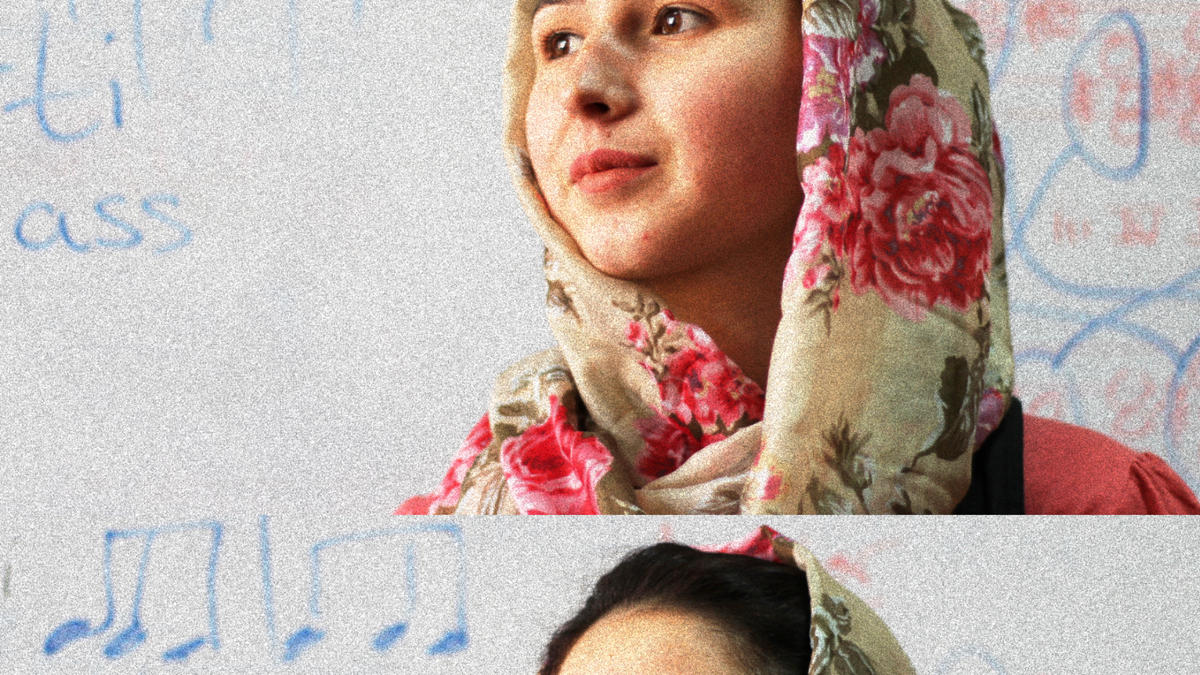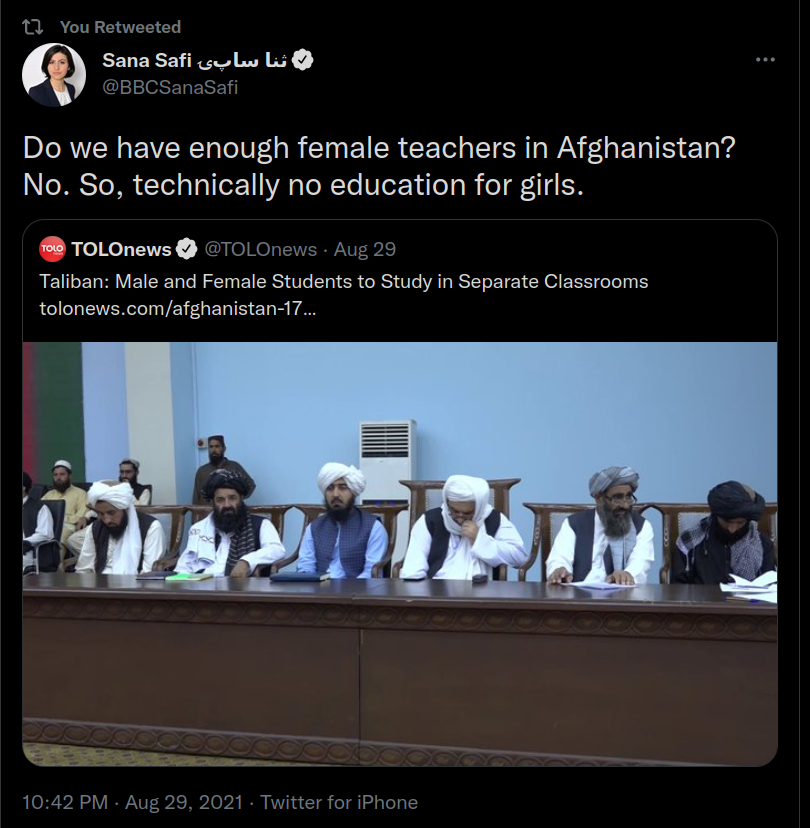Taliban's Takeover of Afghanistan is a Disaster for Women in the Country
But there are ways we can help them.

The Taliban forces in Afghanistan reached the capital, Kabul, on August 16, just weeks after the withdrawal of US troops. Commercial flights out of Kabul have been cancelled due to chaos at the airport, where several people trying to flee the country died after falling off planes during the take off.
Many residents fear for women and girls under Taliban’s extremist rules, with reports they were told to quit their jobs, stay at home and wear a burka. Information has also emerged that Taliban forces were asking for lists of “girls above 15 and widows under 45 to be married as sex slaves to their fighters” during the takeover. Reportedly, families have been told to give their young women and girls to be married to Taliban members.
In the first days after the takeover, the Taliban itself tried to look moderate to the world. On August 18, their spokesman, Zabihullah Mujahid, said the regime will now respect the rights of Afghan women, but many Afghans remain skeptical due to the Taliban’s brutal history. According to The Times, “older generations remember the Taliban’s previous rule, when they largely confined women to their homes, banned television and music, and held public executions.”
Feminist writer Phyllis Chesler experienced life as a woman under rigid rules in Afghanistan. When she was 20 years old, she married an Afghan man and traveled to Kabul where she was forced to live with his family. At arrival, her American passport was confiscated and she spent five months bound to the family compound. She was heavily guarded by her husband’s relatives, beaten by her husband, fed food indigestible to Westerners and had to drink unboiled water, which made her sick. "I am now subject to the laws and customs of Afghanistan, and as an Afghan woman, that means hardly any rights at all," she wrote in her autobiography, the 2013 book ”An American bride in Kabul.”
Here, she recounted how she finally managed to return to the US after being diagnosed with hepatitis. Chesler tried to leave Afghanistan three times but, without her passport, she “no longer had any rights as an American.”
All this happened way before 1996, when Taliban captured Kabul for the first time and the rules for women became much more severe.
The fears reported by those who lived through the first Taliban’s regime might be justified, after all. During the takeover of major cities, heading towards the capital, Al Jazeera reported that Taliban forces were ordering women to leave public places and go home. Taliban fighters walked into a bank in Kandahar and ordered the nine women working there to leave. They also escorted these women to their homes, told them not to return and said that their male relatives should take their places. A similar scene happened two days later in the city of Herat.
The founder of an all-girls boarding school in Afghanistan, Shabana Basij-Rasikh, has reportedly burned students’ records to protect the girls from the Taliban. Basij-Rasikh told the Independent she had done the same when the Taliban was last in power in Afghanistan, 20 years ago. This may be necessary to avoid the female students becoming a target. Formal education was afforded to boys but not to girls from 1996 to 2002 in Afghanistan during the first Taliban regime.
On August 29 2021, the Taliban’s new minister for Higher Education, Abdul Baqi Haqqani, announced that girls and women will have the right to study, but in separate classrooms from boys. BBC Journalist Sana Safi, who covers Afghanistan, tweeted: ”Do we have enough female teachers in Afghanistan? No. So, technically no education for girls.”

Also, to no one’s surprise, the Taliban announced on August 26 that “music will be banned in Afghanistan and women will need a male chaperone if they travel alone for three days.”
Afghan Journalist Nadia Momand tweeted on August 23 that the country’s National Institute of Music “destroyed their musical instruments” and that the “orchestra team members of Afghanistan went to their houses and they will not play again.” It is unknown at the moment how many musicians will be allowed - if ever - to keep working under the Taliban’s rule, but the internationally acclaimed all-female orchestra, Zohra, fears for the future of the group.

Since August 13, women in Western countries have tried to understand the implications for those trying to flee the areas taken by Taliban forces. Lots of women asked how they could help their Afghan counterparts. It can be quite scary to think that, apart from actions like the vigils that Australian women are doing to protect female judges - an obvious target for the Taliban, since two female judges were brutally murdered in January 2021 - there might be little else Western women can do.
Few women have actual structural power to take decisive action in this crisis, but some have reportedly done so. One is Hilary Clinton, who has chartered flights out of Afghanistan for the “country’s at-risk women,” according to the New York Times. Originally, Clinton and her team organized these flights for Afghan journalists, but many didn’t take the flight, although the reasons for not taking the flight are not known at the moment. Instead, other women and children did.
Phyllis Chesler, with a team of radical feminists, also took direct action and successfully rescued 30 Afghan women, as she reported for 4W.Pub on August 28. Her piece recounts the efforts to get journalist “Aisha” and other women out of Afghanistan, but it is also a plea for more help. “We urgently need to raise funding for these women, for their food, plane tickets, cell phone access, changes of clothing, etc.” You can find more information on how to send money here.
Sophie Walker, founding leader of the Women’s Equality Party (WEP UK), created a petition urging for action, as the UK is part of the G7. The petition, which got 5k signatures in two hours, demands an immediate international refugee plan, including “accelerated asylum plan for Afghan women and girls most at risk” and for the right of Afghan women to move freely, have access to healthcare and have participation in politics and NGOs. The petition is now reaching 400k signatures.
Enter your email below to sign in or become a 4W member and join the conversation.
(Already did this? Try refreshing the page!)





Comments